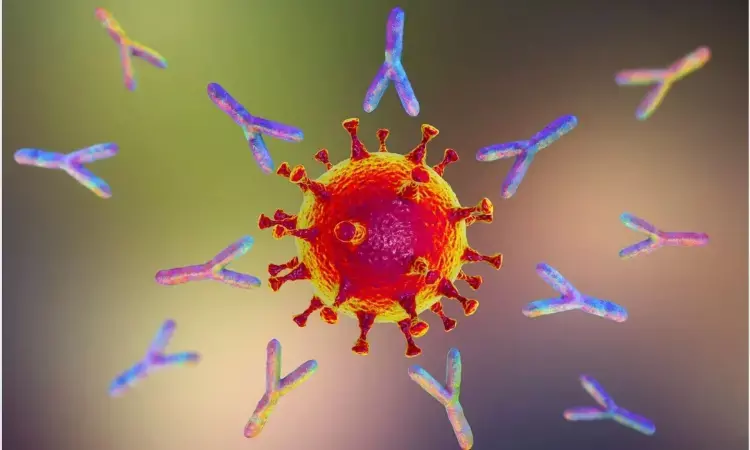- Home
- Medical news & Guidelines
- Anesthesiology
- Cardiology and CTVS
- Critical Care
- Dentistry
- Dermatology
- Diabetes and Endocrinology
- ENT
- Gastroenterology
- Medicine
- Nephrology
- Neurology
- Obstretics-Gynaecology
- Oncology
- Ophthalmology
- Orthopaedics
- Pediatrics-Neonatology
- Psychiatry
- Pulmonology
- Radiology
- Surgery
- Urology
- Laboratory Medicine
- Diet
- Nursing
- Paramedical
- Physiotherapy
- Health news
- Fact Check
- Bone Health Fact Check
- Brain Health Fact Check
- Cancer Related Fact Check
- Child Care Fact Check
- Dental and oral health fact check
- Diabetes and metabolic health fact check
- Diet and Nutrition Fact Check
- Eye and ENT Care Fact Check
- Fitness fact check
- Gut health fact check
- Heart health fact check
- Kidney health fact check
- Medical education fact check
- Men's health fact check
- Respiratory fact check
- Skin and hair care fact check
- Vaccine and Immunization fact check
- Women's health fact check
- AYUSH
- State News
- Andaman and Nicobar Islands
- Andhra Pradesh
- Arunachal Pradesh
- Assam
- Bihar
- Chandigarh
- Chattisgarh
- Dadra and Nagar Haveli
- Daman and Diu
- Delhi
- Goa
- Gujarat
- Haryana
- Himachal Pradesh
- Jammu & Kashmir
- Jharkhand
- Karnataka
- Kerala
- Ladakh
- Lakshadweep
- Madhya Pradesh
- Maharashtra
- Manipur
- Meghalaya
- Mizoram
- Nagaland
- Odisha
- Puducherry
- Punjab
- Rajasthan
- Sikkim
- Tamil Nadu
- Telangana
- Tripura
- Uttar Pradesh
- Uttrakhand
- West Bengal
- Medical Education
- Industry
Treatment with neutralizing monoclonal antibody safe and yield positive outcomes in COVID-19 patients: JAMA

USA: Treating COVID-19 patients with neutralizing monoclonal antibody (nMAb) is safe and is associated with a reduction in hospitalization, visits to the emergency department (ED), and death, a new study has shown. However, the researchers point out that during the Omicron BA.1 epoch, it was not linked with reduced hospitalization risk.
The findings, published in JAMA Network Open, suggest that targeted risk stratification strategies may help optimize future nMAb treatment decisions.
The cause of COVID-19, SARS-CoV-2, may lead to severe disease linked with high death and hospitalization rates. Therapy with neutralizing monoclonal antibodies that bind to the spike protein of SARS-CoV-2 has been demonstrated to prevent death and hospitalization n randomized clinical trials (RCTs) of nonvaccinated, nonhospitalized patients at high risk of poor outcomes. The US FDA granted several nMAb therapies emergency use authorization (EUA).
Building on evidence from RCTs, monitoring the safety and effectiveness of nMAb therapies is critical to inform clinical practice and policy recommendations. Therefore, Nalini Ambrose, The MITRE Corporation, Bedford, Massachusetts, and colleagues assessed the safety of four neutralizing monoclonal antibodies products (sotrovimab, casirivimab-imdevimab, bamlanivimab-etesevimab, and bamlanivimab) and their association with adverse outcomes for treatment of COVID-19 in a retrospective cohort study.
The study included 167 183 patients from a consortium of 4 healthcare systems. The patients were nonhospitalized, 12 years and older with a positive COVID-19 infection, and met at least one emergency use authorization criterion for risk of a poor outcome.
The association between treatment with nMAbs and four outcomes were assessed using clinical and SARS-CoV-2 genomic sequence data. The four outcomes included hospitalization, all-cause ED visits, death, and a composite of death and hospitalization within 14 days and 30 days of the index date. Patient index dates were divided into four variant epochs: Omicron BA.1 (January 1 to 31, 2022), Delta and Omicron BA.1 (December 1 to 31, 2021), Delta (July 1 to November 30, 2021), and pre-Delta (November 9, 2020, to June 30, 2021).
The authors reported the following findings:
- Among 167 183 patients, the mean age was 47.0 years; 57.2% were female at birth.
- A total of 25 241 patients received treatment with neutralizing monoclonal antibodies. Treatment with nMAbs was associated with lower odds of hospitalization within 14 days (OR, 0.52), ED visits within 14 days (odds ratio [OR], 0.76), and death within 30 days (OR, 0.14).
- The association between nMAbs and reduced hospitalization risk was more substantial in unvaccinated patients (14-day hospitalization: OR, 0.51). The associations with death and hospitalization were stronger in immunocompromised patients (hospitalization within 14 days: OR, 0.31; death within 30 days: OR, 0.13).
- The strength of associations of nMAbs increased incrementally among patients with a greater probability of poor outcomes; for example, the ORs for hospitalization within 14 days were 0.58 among those in the third (moderate) risk stratum and 0.41 among those in the fifth (highest) risk stratum.
- The association of nMAb treatment with reduced hospitalization risk within 14 days was strongest during the Delta variant epoch (OR, 0.37) but not during the Omicron BA.1 epoch (OR, 1.29). These findings were corroborated in the subset of patients with viral genomic data.
- Treatment with nMAbs was associated with a significant mortality benefit in all variant epochs (Delta: OR, 0.14; pre-Delta: OR, 0.16; Delta and Omicron BA.1: OR, 0.10; and Omicron BA.1: OR, 0.13).
- Potential adverse drug events were identified in 38 treated patients (0.2%
"This study is noteworthy because of its long study period, large sample size, and inclusion of viral genomic data," the researchers wrote.
Reference:
Ambrose N, Amin A, Anderson B, et al. Neutralizing Monoclonal Antibody Use and COVID-19 Infection Outcomes. JAMA Netw Open. 2023;6(4):e239694. doi:10.1001/jamanetworkopen.2023.9694
Dr Kamal Kant Kohli-MBBS, DTCD- a chest specialist with more than 30 years of practice and a flair for writing clinical articles, Dr Kamal Kant Kohli joined Medical Dialogues as a Chief Editor of Medical News. Besides writing articles, as an editor, he proofreads and verifies all the medical content published on Medical Dialogues including those coming from journals, studies,medical conferences,guidelines etc. Email: drkohli@medicaldialogues.in. Contact no. 011-43720751


